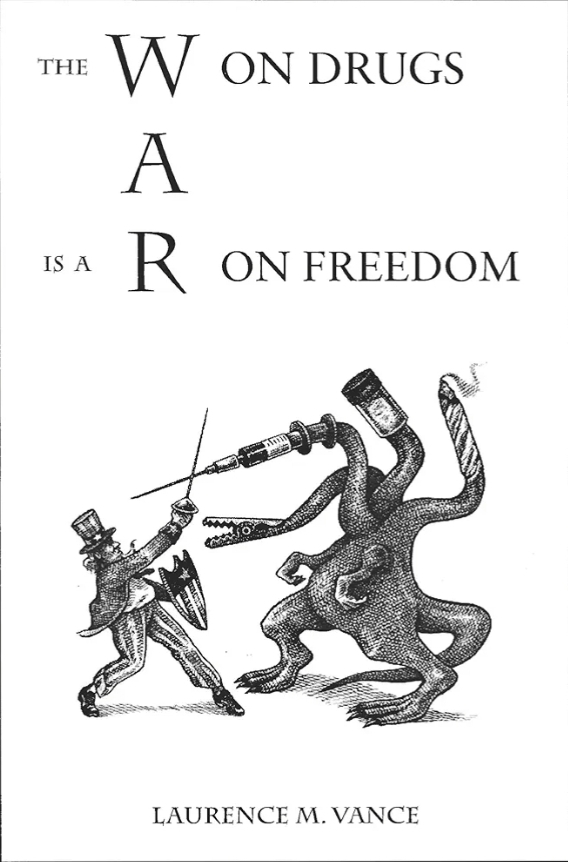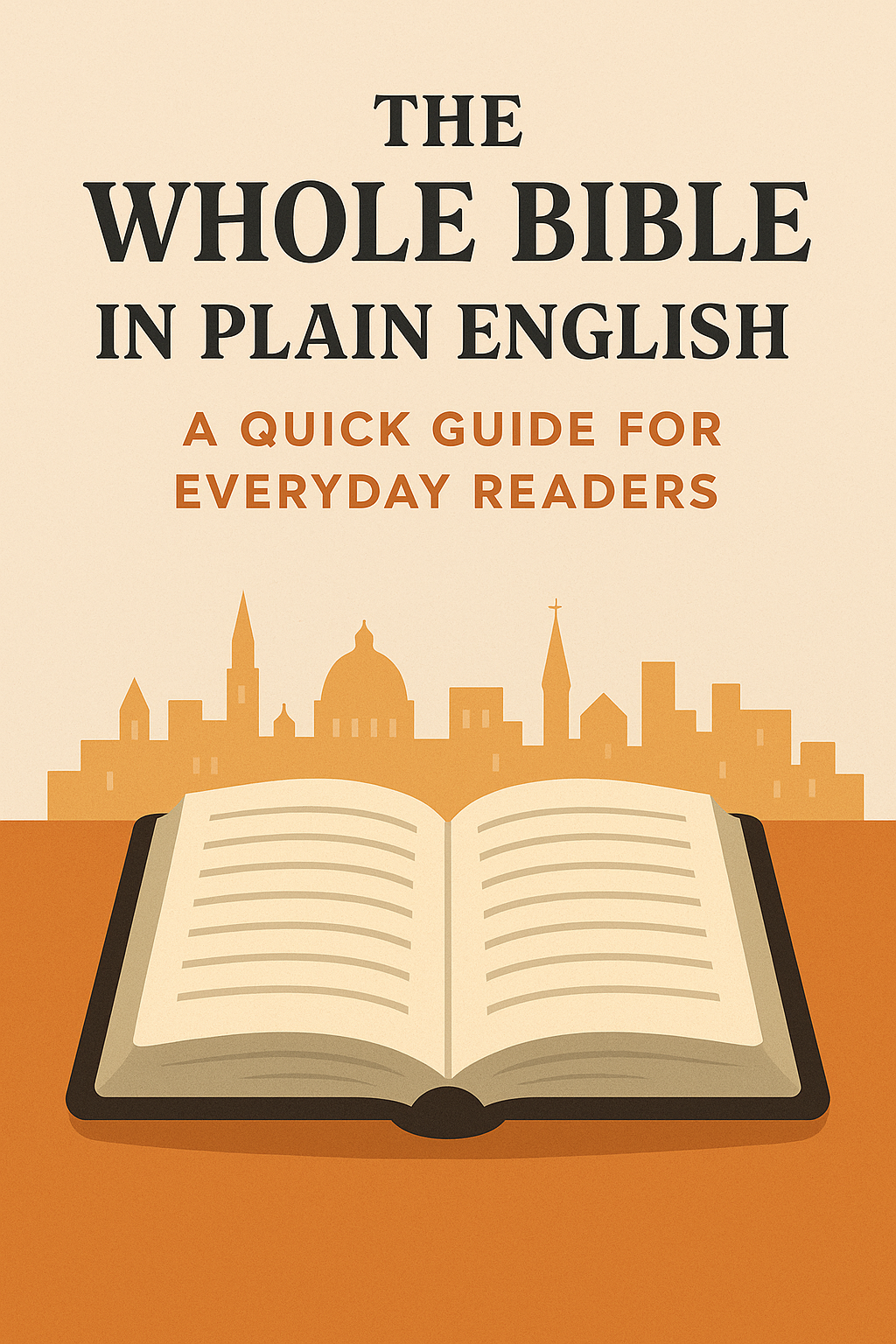Laurence M. Vance’s The War on Drugs Is a War on Freedom is a libertarian critique of U.S. drug policy, focusing on how the War on Drugs violates individual liberties, expands government power, and causes widespread societal harm. Vance argues that the government’s intervention in personal choices about drug use represents an infringement on personal freedom, and he calls for the complete legalization of all drugs as a means to restore individual liberty and reduce government overreach.
The War on Drugs as an Assault on Liberty:
- Vance’s primary argument is that the War on Drugs represents a fundamental violation of individual rights. He asserts that individuals have the right to make choices about their own bodies, including the decision to use drugs, and that the government should not interfere in personal behavior that does not directly harm others.
- Personal Freedom: According to Vance, the government’s role in regulating drug use undermines the principle of individual liberty, which is central to a free society. He argues that the decision to use or not use drugs should be left to personal discretion, not government mandate.
The Expansion of Government Power:
- Vance criticizes the War on Drugs for significantly expanding the power of the federal government. He argues that drug prohibition has given rise to a militarized police force, widespread surveillance, and intrusive government practices, all of which erode civil liberties.
- Erosion of Privacy: The author highlights how the drug war has led to the violation of privacy rights, with law enforcement agencies using tactics such as warrantless searches, asset forfeiture, and no-knock raids. Vance contends that these measures are incompatible with the principles of a free society.
Criminalization of Victimless Crimes:
- One of Vance’s key points is that drug use is a “victimless crime”, meaning that it does not inherently harm others and should not be subject to criminal penalties. He argues that criminalizing drug use punishes individuals for making personal choices that are within their own sphere of autonomy.
- Punishment without Harm: Vance is critical of the vast number of people incarcerated for drug offenses, particularly non-violent drug users, who he believes should not be treated as criminals. He sees the criminal justice system’s role in the drug war as disproportionately harsh and unjust.
Social and Economic Costs of the War on Drugs:
- Vance details the economic costs of the War on Drugs, including the enormous public expenditures on law enforcement, prisons, and the legal system. He argues that these resources could be better spent on other public services, such as education, infrastructure, or healthcare.
- Inefficiency of Prohibition: Vance contends that drug prohibition is an inefficient and costly policy that has failed to achieve its intended goals of reducing drug use and addiction. Instead, it has exacerbated problems such as overcrowded prisons, racial disparities in arrests and sentencing, and the growth of organized crime.
The Racial and Social Inequalities of Drug Laws:
- Vance highlights how the War on Drugs disproportionately impacts minority communities and the poor. He notes the racial disparities in drug-related arrests and convictions, with African Americans and Latinos being far more likely to be incarcerated for drug offenses than white Americans, despite similar rates of drug use.
- Systemic Injustice: Vance views drug laws as inherently unjust, arguing that they target vulnerable populations and exacerbate social inequalities. He points to the over-policing of minority communities and the way in which drug enforcement perpetuates cycles of poverty and disenfranchisement.
The Moral Case for Legalization:
- Vance makes a strong moral argument for the legalization of all drugs, including substances like marijuana, cocaine, and heroin. He contends that, from a libertarian perspective, the use of drugs is a personal moral decision and should not be subject to government regulation or criminalization.
- Drug Use as a Moral Choice: He emphasizes that individuals should be free to make their own choices, even if others view those choices as unwise or immoral. Vance argues that drug addiction should be addressed as a health issue rather than a criminal issue and that personal responsibility should guide decisions about drug use.
Criticism of Federalism and State Power:
- Vance is highly critical of the federal government’s involvement in drug policy. He argues that drug prohibition represents federal overreach, infringing on the rights of states and individuals to make their own decisions regarding drug laws.
- States’ Rights: Vance advocates for a return to a more decentralized approach, where states have the freedom to set their own drug policies without federal interference. He sees the current system as a violation of the principles of federalism and the Constitution.
The Role of Law Enforcement and Corruption:
- Vance also explores how the War on Drugs has corrupted law enforcement, incentivizing police departments to prioritize drug arrests through policies like asset forfeiture, where police can seize property suspected of being connected to drug crimes without necessarily proving guilt.
- Perverse Incentives: These policies, Vance argues, have created perverse incentives for police to target drug users and dealers over more serious criminals, leading to widespread abuses of power. He is particularly critical of how law enforcement agencies profit from the drug war, often at the expense of civil liberties.
Lessons from Alcohol Prohibition:
- Like other critics of drug prohibition, Vance draws comparisons to the era of alcohol prohibition in the U.S. during the 1920s. He notes that alcohol prohibition led to many of the same problems seen in the War on Drugs today, including the rise of organized crime, corruption, and violence.
- Repeal as a Model: Vance argues that just as alcohol prohibition was eventually recognized as a failure and repealed, so too should drug prohibition be ended. He believes that legalizing and regulating drugs would lead to less crime, lower public costs, and greater respect for individual freedom.
Alternatives to Prohibition:
- Vance calls for drug legalization as the only viable alternative to the current system. He argues that a regulated market for drugs would not only reduce crime and violence but also allow for safer drug use through quality control and proper labeling.
- Health-Centered Approach: Vance advocates for a health-based approach to drug addiction, emphasizing treatment and education rather than punishment. He believes that the government should focus on helping people overcome addiction, rather than criminalizing them for their struggles with substance abuse.
Conclusion:
Laurence M. Vance’s The War on Drugs Is a War on Freedom is a passionate libertarian critique of drug prohibition. Vance argues that the War on Drugs has failed in its goals and has caused significant harm to individual freedom, social justice, and the economy. His solution is the complete legalization of all drugs, coupled with a more compassionate, health-focused approach to addiction. Vance’s work is a call to return to the principles of personal liberty and responsibility, with the belief that individuals should be free to make their own choices about drug use without government interference.






